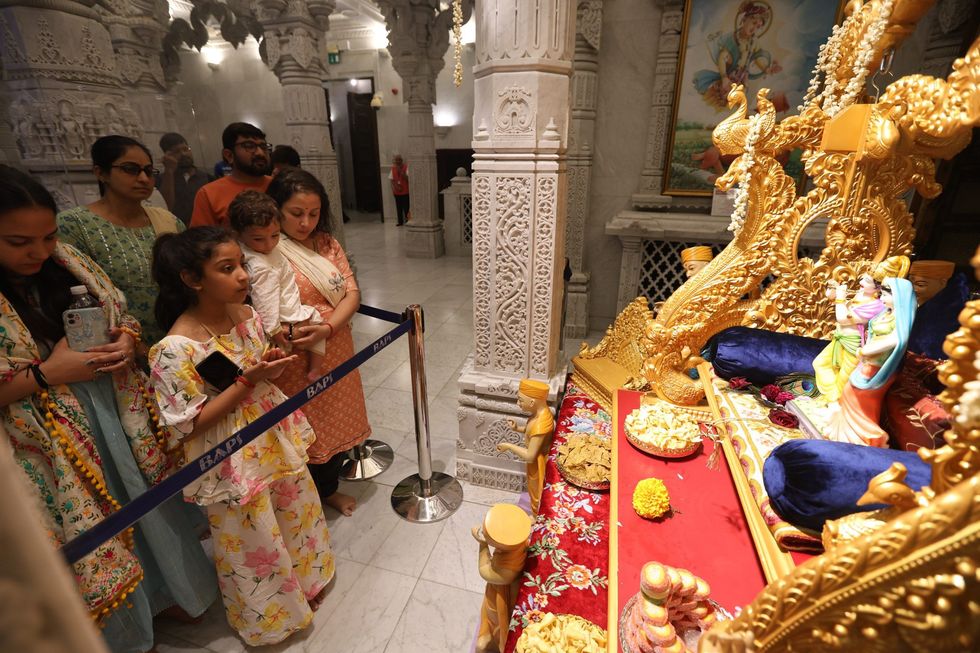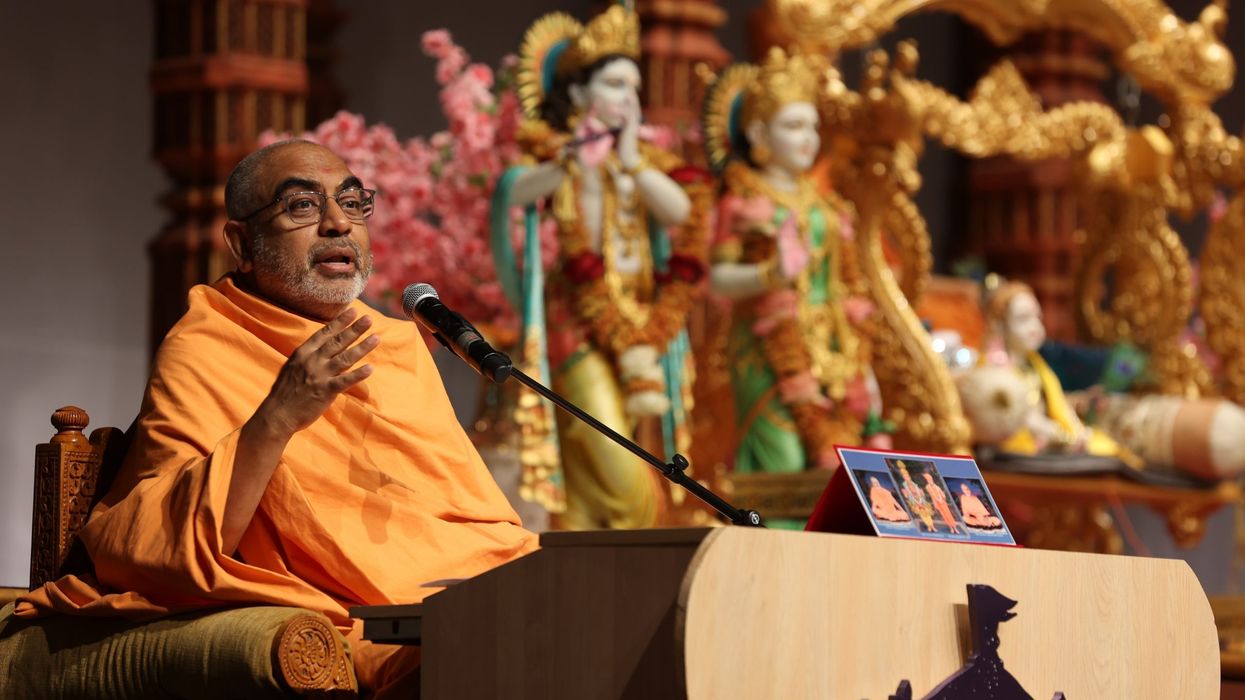THE BAPS Shri Swaminarayan Mandir in London, popularly known as Neasden Temple, celebrated Krishna Janmashtami (birth celebrations of Lord Krishna) with a host of devotional festivities on 7 September, a statement said.
Devotees and visitors arrived at the temple throughout the day to offer prayers and respects as well as gently swing the image of Lord Krishna which was ceremoniously placed on a birth cradle as part of the event.
As per tradition, a grand offering of food (annakut) was arranged before the shrines in the upper sanctum, the statement added.
Lord Krishna, a popular deity for Hindus around the world, manifested on earth on the Hindu calendrical day of Shravan Vad 8.

During the festive assembly, Yogvivekdas Swami, head swami at Neasden Temple, addressed the congregation, speaking about the timeless teachings of Lord Krishna from the Bhagavad Gita.
He particularly drew upon the relationship between Arjuna and Lord Krishna and how the Gita’s wisdom can be applied to everyday living for greater purpose and spiritual fulfilment.
As per the statement, the celebration of the Lord's birth was commemorated by children, young individuals, and swamis. They began with the arti, followed by the joyful swinging of the cradle, accompanied by lively devotional songs, bringing the festivities to a delightful conclusion.





